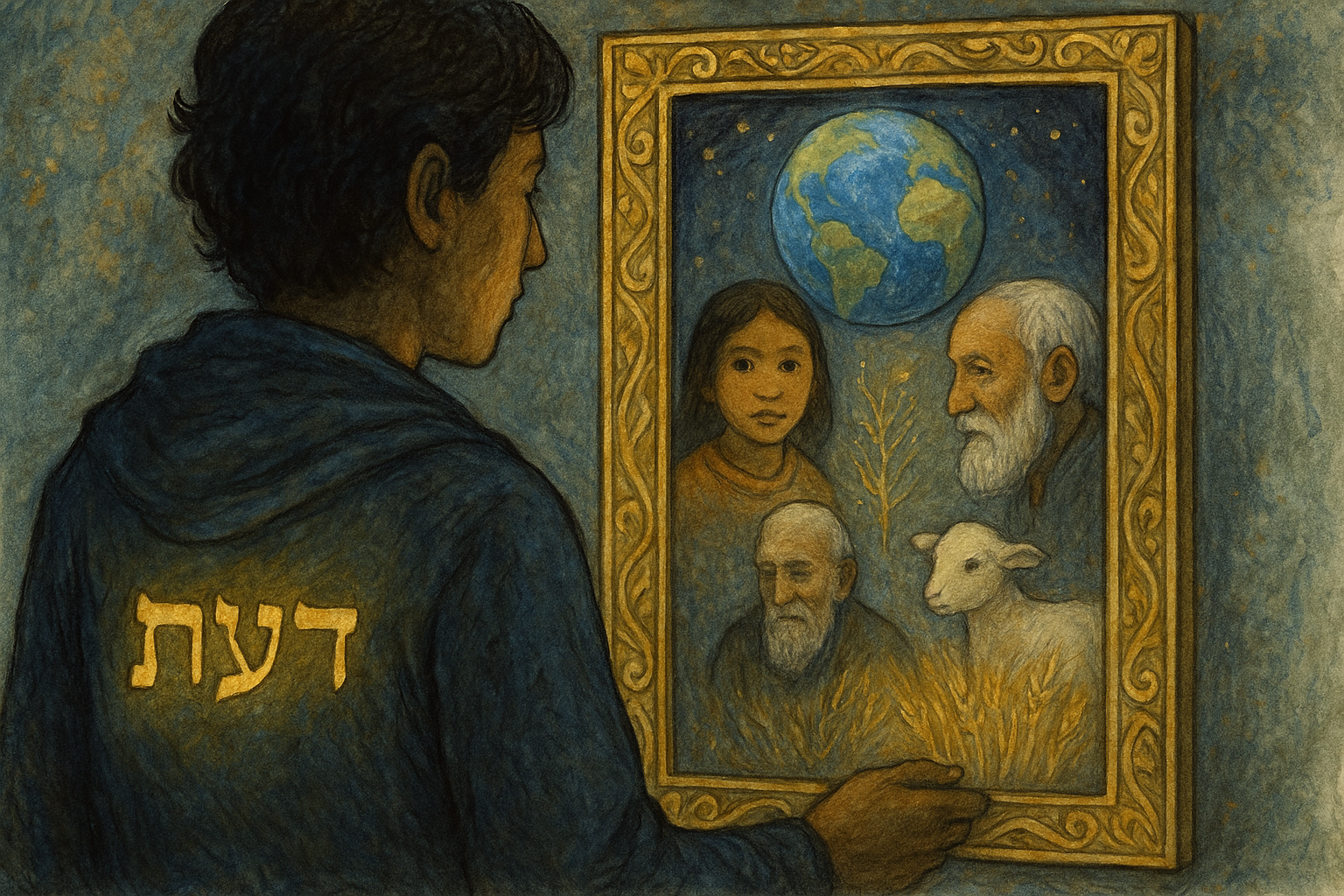
Objective:
In this week’s discussion we will explore the mystery of Da’at (Knowledge). By considering a passage from Zenock. (this passage follows immediately after the one from last week)
Beads:
Section 6, the second bead:
The Mystery of the Perfect Knowledge
The Knowledge of the Creator and the Creation
For to know the Creator is to Love the Creator
And to Love the Creator is to Love the Creation
Note on the Order
In most of the sequences of the beads, we move down the tree from left to right, which places Wisdom (Chokhmah) before Knowledge (Da’at). In some passages that follow the Sephirot in order, the two are switched. In other places, we learn that they are “tied” for second and third place, and intentionally not given in a consistent order. I just wanted to point out that this is one of the cases where Knowledge (Da’at) is mentioned in the scriptures seemingly out of the normal order, and that …. It’s fine.
Passages to Ponder
Zenock 12:15-18
15. ¶ And the Torah does teach us: Thou shalt love thy neighbor as thyself; I am YHVH, thy Elohim.
16. Wherefore, all of this, the creation, is our neighbor; if we do love the Creator, then we show this love by our love for this creation.
17. And this wisdom is the perfect knowledge of the Creator and the creation; for how can a man take a wife that is a widow and love her but not love her children?
18. Therefore, if Israel is to love YHVH, our Elohim, then we will love all of His creation.
1 John 4:6-11
7. Beloved, let us love one another, for love is of God; and everyone that loveth is born of God and knoweth God.
8. He that loveth not, knoweth not God; for God is love.
9. In this was manifested the love of God toward us, because that God sent his Only Begotten Son into the world that we might live through him.
10. Herein is love, not that we loved God, but that he loved us and sent his Son to be the propitiation for our sins.
11. Beloved, if God so loved us, we ought also to love one another.
Zenock 5:37-42
37. And who is thy neighbor? It is they that love thee? I say unto thee: Yea;
38. And it is they that hate thee? I say unto thee: Yea.
39. And this is not all, for it is also they that know thee not:
40. And thy neighbor is the calf that did fall into the ditch, and thy neighbor is that lamb that did fall into the well, and thy neighbor is that oxen that did fall into the snare;
41. And thy neighbor is that tree that was struck down with the ax and left to rot, and thy neighbor is that flower plucked from the field and thrown away, and thy neighbor is that fruit that was plucked up and not eaten.
42. ¶ Wherefore do I say unto thee: Love not only that which can be set up for thy benefit, but love all the creation of YHVH Elohim,
Questions of Knowledge (What it says at the surface)
- Who does Zenock say we should consider our “Neighbor” when we are trying to follow the commandment to “love thy neighbor as thyself”?
Questions of Wisdom (What it means below the surface)
- Can a man say he honestly loves a widow he has married, if he does not also love her children? How does this apply to our love for our Creator and his Creation?
- Can we truly love the Creator if there are groups of his children that we hold hatred toward?
- Can we love the Creator and knowingly damage our Mother the Earth?
- Can we do needless violence to anything and yet claim a deep abiding love of our Creator?
Questions of Understanding (Likening it to Ourselves)
- Have you ever received the Love of the Creator THROUGH someone else who was simply serving God by helping you? What were the circumstances? How did it affect your connection with God? And your connection with that person? And that person’s connection with God?
Questions of Mystery (What deeper meaning can be harvested)
- Last week we learned that the Perfect Love is to Love the Creator “Wholly”. If that is applied to the Creation, that means we would need to love All of His Creation, “Wholly”. Ponder on that for a while.
- How can we vehemently love something as contrary to our own nature as fire is to water?
- What love can you show to a flower that was plucked up and cast then cast aside, of fruit that was plucked but never eaten?